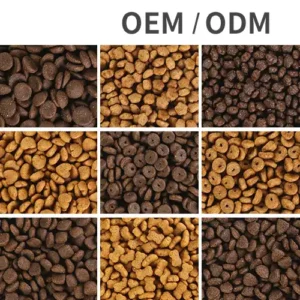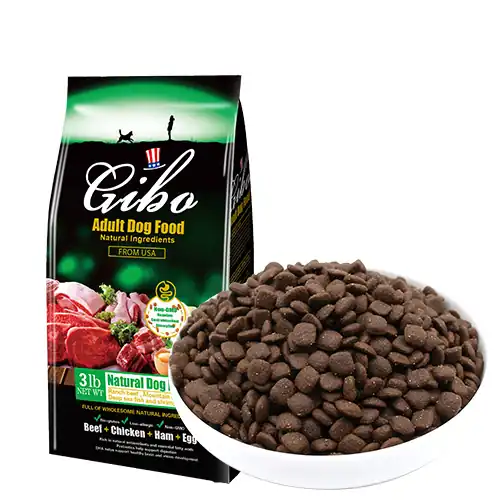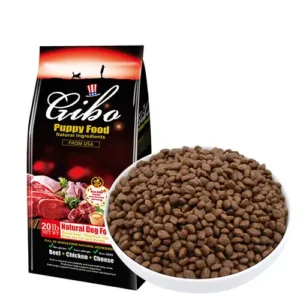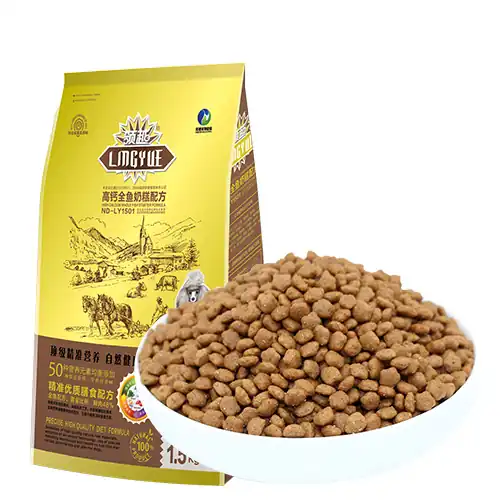Feeding homemade dog food may feel like a good way to benefit your pet. But dogs have complex nutritional needs that often can’t be met with common ingredients found in our food. Here’s what you need to know about homemade dog food.

More and more pet owners are beginning to consider homemade dog food, hoping to provide their dogs with a more diverse diet and more different flavor combinations. While homemade dog food and treats can be satisfying, the risks of making your own can outweigh any possible benefits. Pet food must be made with great care and the nutritional content must be precisely balanced.
Daily nutritional requirements for dogs
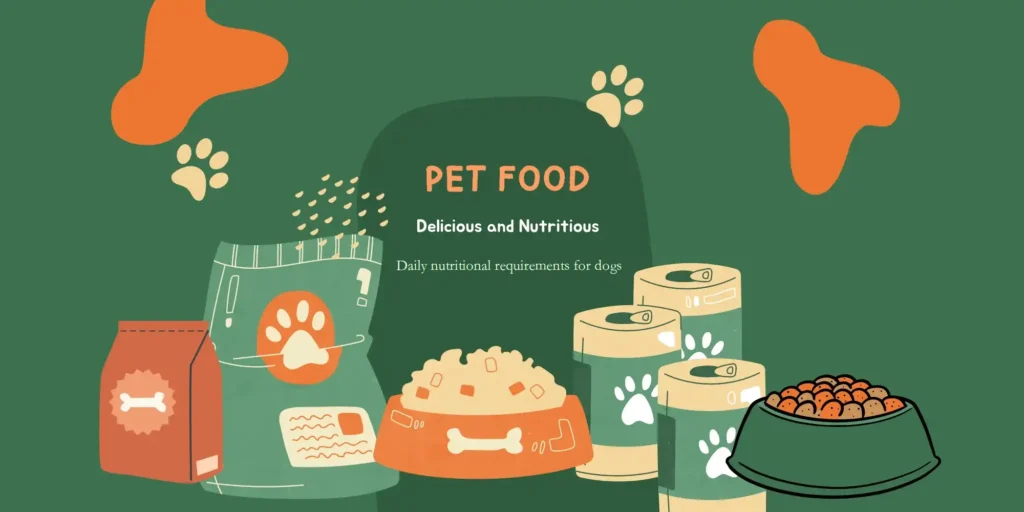
According to research by the Pet Food Association, to maintain good health. Each nutrient must be precisely balanced, because too much or too little of one nutrient may lead to malnutrition and thus affect health. Dogs need several specific nutrients in their daily diet to maintain good health, namely:
Vital nutrients are one of the six major nutrients that are important for your dog’s health:
protein
Protein is needed to maintain muscle mass and is a great source of amino acids, and dogs need a lot of it. These proteins usually come from meat, fish, eggs, dairy or vegetables.
Fat
Vegetable oils and specialty fish oils and meat proteins provide the lipids, or fats, that dogs need to maintain healthy body functions, promote cell growth, and absorb vitamins.
carbohydrate
Carbohydrates are a source of energy that allow other nutrients containing calories to be used elsewhere, such as protein to help maintain muscle mass. Although carbohydrates are not required, it is recommended to include other carbohydrates (such as fiber) in your dog’s food to aid digestion.
Minerals and Vitamins
Fresh ingredients are deficient in certain vitamins and minerals, so specialized veterinary prescription diets may be needed to supplement the remaining essential nutrients. For example, meat is low in calcium but high in phosphorus. It is very important to make the formula accurately, as anything incorrect can cause bone problems in your dog.
Moisture
Water is the main component of animal bodies. Dogs must have access to fresh, clean drinking water at all times to avoid dehydration. Moisture is key to regulating body temperature, promoting intestinal motility, and transporting nutrients and waste products through the body.
The amount of each nutrient is determined based on factors such as age, breed, weight, lifestyle, sensitivity and health, and will change as your pet ages.
Even a healthy adult dog’s nutritional needs may change due to activity levels, nursing, or even changes in the home environment. For example, a dog living in an urban environment may have different nutritional needs than a dog living in a rural area.
Can I make my own dog food?

Making your own dog food can be complicated. Before starting to change your pet’s diet, be sure to consult a veterinary nutritionist who can help you calculate your dog’s energy and nutritional needs. Your dog’s breed, age, weight, activity level, health and living conditions are all taken into consideration when determining the nutritional content of your dog, so that each nutritional requirement of your dog can be accurately met.
Once you’ve identified your pet’s nutritional needs and obtained a diet formula from a veterinary nutritionist, you’ll need to purchase specialized equipment. This may include (but is not limited to) high-end meat grinders, cleavers, knives, scissors, bowls, scales, containers, gloves, and cutting boards. Hygiene standards must be strictly adhered to during preparation to avoid bacterial contamination.
Choosing the right ingredients to provide a variety of nutrients can also be difficult. Your veterinary nutritionist will assist in selecting specific ingredients so that your dog receives the appropriate amount of each nutrient. Some nutrients are great for us humans but are toxic to dogs. For example, onions are a great source of vitamins and potassium, both important nutrients for pets, but they are toxic to dogs.
Even if you know what ingredients are safe for dogs, if you’re not used to making pet food, you may find that it’s not easy to get the right nutrients in the right amounts, and there’s the potential for overfeeding or nutrition if not handled properly. Undesirable risks.
While homemade pet food recipes are easy to come by, even with the right equipment and safe, nutritious ingredients, creating a complete and balanced pet diet at home can be difficult. Before deciding to make your own pet food, you must consult a veterinary nutritionist with professional pet nutrition knowledge to assist you in providing the most appropriate and complete diet for your dog to promote your dog’s physical and mental health.
Dogs are different from humans
If you are considering making your own pet food at home, it is important to remember that dogs are very different from humans, with different nutritional needs and eating patterns.
Humans value taste, but taste is not important to dogs. We humans have 9,000 taste buds, but dogs only have 1,700, so their sense of taste is underdeveloped. 2
We humans chew and taste our food, but dogs gnaw and bite, which means they chew less often and devour it faster. Therefore, food does not need to have too many choices.
Unlike humans, dogs don’t need to have many different diets. Changing your dog’s diet frequently can cause gastrointestinal upset in them. If you must switch to a new diet for your pet, be sure to make the adjustment slowly and in stages.
For dogs, the most important thing is the taste, texture and temperature of the food, as well as timing and quantity. The appearance, color and type of food are not important to them, and if the diet is changed frequently, there is a risk of gastrointestinal upset.
Is homemade dog food suitable for my dog?
Your dog relies on you for food and all the nutrients to stay in good health, so be sure to consider a food that’s right for them.
Although homemade dog food may feel reassuring, it must be made under strict hygiene conditions and in precise quantities to ensure food safety and nutrition. Selecting quality ingredients can also be complicated and expensive.
You may find that nutritionally balanced, prepared meals tailored specifically to your dog’s age, size, breed, and health are an easier and better choice for you and your dog. At French Royal, our scientists and pet nutrition experts have systematically researched each nutrient and fine-tuned it precisely to enable your dog to maintain optimal health.

